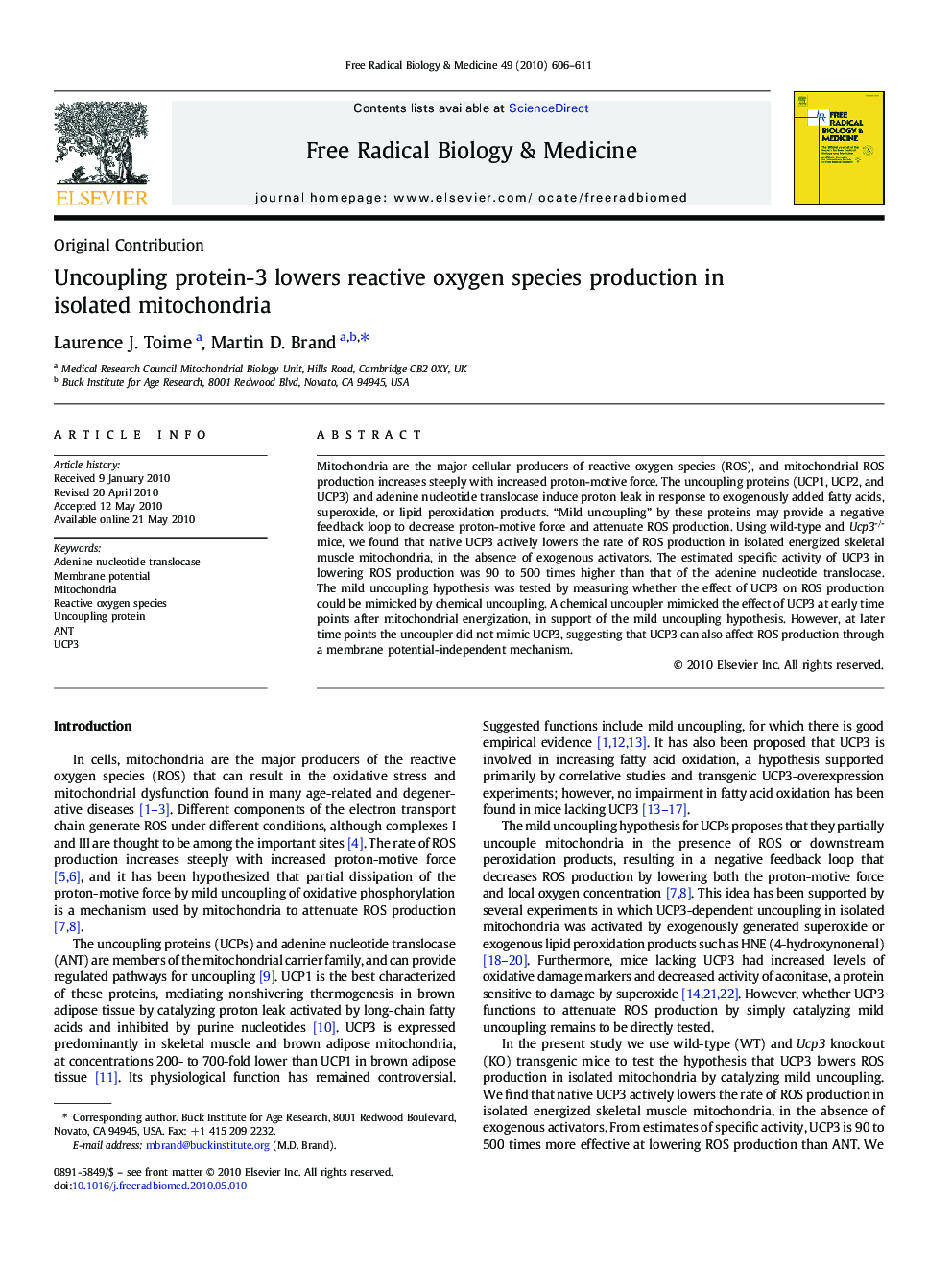| کد مقاله | کد نشریه | سال انتشار | مقاله انگلیسی | نسخه تمام متن |
|---|---|---|---|---|
| 1909269 | 1046717 | 2010 | 6 صفحه PDF | دانلود رایگان |

Mitochondria are the major cellular producers of reactive oxygen species (ROS), and mitochondrial ROS production increases steeply with increased proton-motive force. The uncoupling proteins (UCP1, UCP2, and UCP3) and adenine nucleotide translocase induce proton leak in response to exogenously added fatty acids, superoxide, or lipid peroxidation products. “Mild uncoupling” by these proteins may provide a negative feedback loop to decrease proton-motive force and attenuate ROS production. Using wild-type and Ucp3-/- mice, we found that native UCP3 actively lowers the rate of ROS production in isolated energized skeletal muscle mitochondria, in the absence of exogenous activators. The estimated specific activity of UCP3 in lowering ROS production was 90 to 500 times higher than that of the adenine nucleotide translocase. The mild uncoupling hypothesis was tested by measuring whether the effect of UCP3 on ROS production could be mimicked by chemical uncoupling. A chemical uncoupler mimicked the effect of UCP3 at early time points after mitochondrial energization, in support of the mild uncoupling hypothesis. However, at later time points the uncoupler did not mimic UCP3, suggesting that UCP3 can also affect ROS production through a membrane potential-independent mechanism.
Journal: Free Radical Biology and Medicine - Volume 49, Issue 4, 15 August 2010, Pages 606–611